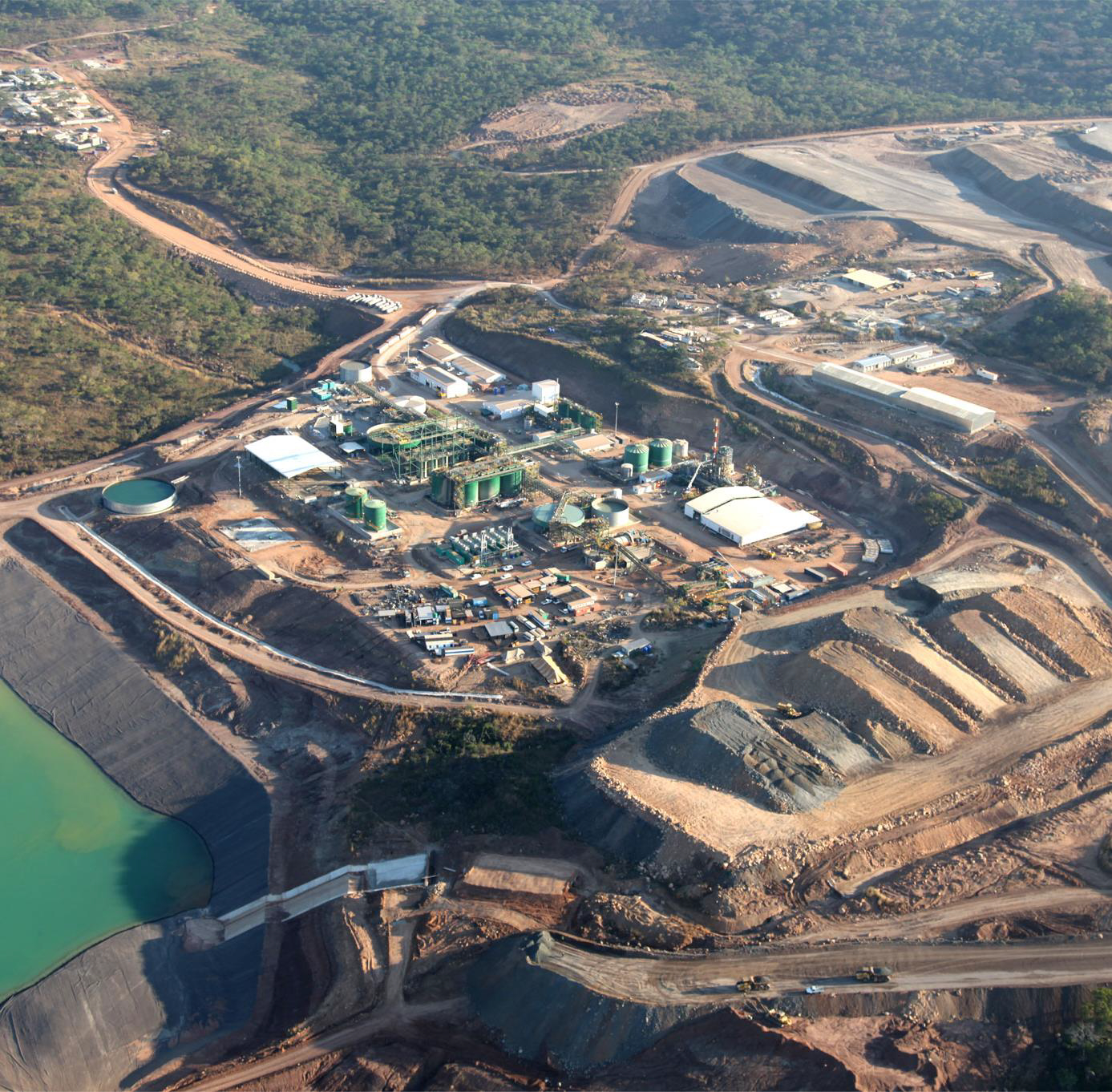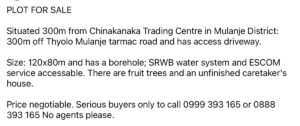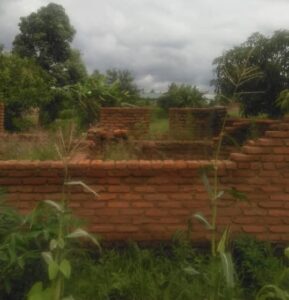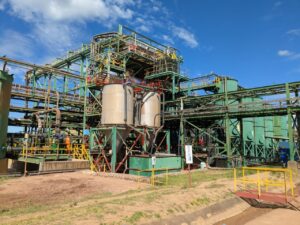

Kayelekera uranium mine in Karonga (top) and Kangankunde rare earths mine in Balaka being developed by Australian companies
* Imposing a blanket export ban without parallel investment in domestic processing capacity and logistics infrastructure could have unintended economic consequences
* The idea of banning raw mineral exports aligns with the long-term vision of achieving domestic beneficiation and industrial transformation, which is perfect for Malawi
* However, without adequate infrastructure— such as power, transport, and processing facilities — the policy could inadvertently stifle sector growth, reduce foreign exchange earnings, and discourage private investment
By Duncan Mlanjira
While the total export ban on raw minerals could potentially enhance value addition and national revenue retention, such a policy must be implemented with careful consideration of Malawi’s current infrastructure and industrial capacity constraints.

Advertisement
This has been cautioned by South Africa’s Don Consultancy Group (DCG) Chief Economist, Chifipa Mhango, who has endorsed that Malawi’s mineral endowment offers great potential for industrialisation and economic diversification — however, he warns that “imposing a blanket export ban without parallel investment in domestic processing capacity and logistics infrastructure could have unintended economic consequences”.
“The idea of banning raw mineral exports aligns with the long-term vision of achieving domestic beneficiation and industrial transformation, which is perfect for Malawi,” says Mhango in a press statement.
“However, without adequate infrastructure— such as power, transport, and processing facilities — the policy could inadvertently stifle sector growth, reduce foreign exchange earnings, and discourage private investment.”
On October 21, during the swearing-in of the State Second Vice-President Enock Chihana; Ministers of Agriculture, Irrigation & Water Development, Roza Mbilizi and of Business, Trade & Tourism, George Patridge, President Peter Mutharika indicated that he would not allow exportation of raw materials from all mines — but has to be processed right in the country.
He expressed optimism that the country stands to significantly benefit from mining sites discovered at Kasiya in Lilongwe and Kangankude in Balaka — emphasising that if the mining proceeds from the two sites would be managed properly, the country would be generating around US$500 million every year.

President Mutharika
But Mhango explains that a total export ban could have both advantages and disadvantages for an economy such as Malawi’s — and he breaks it down to:
Potential advantages
* Promotion of Value Addition: Encourages domestic processing, leading to job creation and technology transfer;
* Increased Fiscal Revenues: Retaining more value locally can enhance government revenue through higher export prices of finished goods;
* Industrial Development: Stimulates the growth of downstream industries, including metallurgy, manufacturing, and related services;
* Economic Sovereignty: Reduces dependency on raw commodity exports and enhances economic resilience.
Potential disadvantages
* Loss of Immediate Foreign Exchange: Without ready local processing facilities, mineral output may remain unsold, reducing forex inflows;
* Investor Uncertainty: Policy instability or abrupt bans can deter mining investment and long-term exploration commitments;
* Infrastructure Deficit: Lack of reliable energy, transport, and water systems limits the feasibility of local beneficiation;
* Smuggling and Informal Trade: Overly restrictive policies can drive illegal exports, undermining both revenue and governance objectives.

Chief Economist Chifipa Mhango
The Chief Economist stresses that “a phased and strategic approach would be more sustainable: This could include prioritising the development of mineral value chains, establishing special economic processing zones, and providing incentives for investors to set up local refining and beneficiation plants.
“A well-sequenced policy — supported by infrastructure development, power stability, and investor confidence — will yield better long-term results than a blanket ban.
“Malawi must focus on creating an enabling environment for beneficiation rather than enforcing restrictive measures in a context of limited industrial capacity.”
He added that the government’s role should be to balance immediate revenue needs with long-term transformation goals, ensuring that the mining sector contributes sustainably to MW2063 national vision.
Mhango thus called for the urgent strengthening of the Malawi Mining Investment Company (MMIC) to enable it to play a more active role as a deal marker and strategic government shareholder in mining ventures across the country.



Advertisement
He noted that Malawi’s recent discoveries of rare earth elements, lithium, and other strategic minerals present a unique opportunity for the country to reposition itself within the global mineral value chain.
However, he cautioned that “without a strong institutional vehicle to negotiate, hold equity, and ensure value retention, the nation risks losing out on potential long-term economic benefits”.
“The Malawi Mining Investment Company must evolve from a passive entity into an empowered, well-capitalised, and professional investment arm of government.
“It should be the central instrument through which the State participates meaningfully in mining projects — ensuring transparency, fair value, and shared prosperity.”
He outlined several key areas of reform and capacity enhancement necessary for MMIC to fulfil its role effectively:
1. Capitalisation and Financial Autonomy: Ensuring adequate funding and operational independence to enable the company to invest, negotiate, and hold equity stakes on behalf of the State;
2. Professional and Technical Expertise: Building a team of skilled geologists, financial analysts, legal experts, and negotiators to manage complex mineral contracts;
3. Clear Mandate and Governance Framework: Establishing well-defined roles and reporting structures to avoid overlaps with the Ministry of Mining and other state institutions;
4. Partnership Facilitation: Positioning MMIC as a credible partner for both domestic and international investors seeking joint ventures in exploration, beneficiation, and value addition;
5. Revenue Accountability and Transparency: Ensuring that all mining-related equity and dividends are transparently reported and reinvested in national development priorities.

Machinery at Kayelekera mine
He further emphasised that state participation in mining deals through MMIC does not imply excessive state control, but rather strategic partnership and value protection.
“Government must not only be a regulator but also a smart investor,” he said. “By empowering the Mining Investment Company, Malawi can negotiate better terms, ensure fair value for its mineral wealth, and promote inclusive growth through local participation.
“MMIC’s strengthened role would also complement ongoing reforms under the MW2063 framework, which identifies mining and mineral beneficiation as critical enablers of industrialization and economic transformation.”
He concluded by observing that “this is a critical moment for Malawi to position itself as a serious player in global mineral markets. A robust and professionally managed Mining Investment Company will ensure that Malawians benefit directly and sustainably from the country’s mineral wealth.”
Malawi is endowed with an extensive exploration portfolio with Kasiya in Lilongwe being rich with rare rutile deposits with Kangankude boasting of rare earths deposits, which is being developed by Australian investor, Lindian Resources.
Another rare earth mines is being developed by Mkango Resources at Songwe Hills in Phalombe; another Australian mining company, Lotus Resources invested in Kayelekera uranium mine in Karonga.
Other projects include uranium-tantalum-niobium-zircon in Thambani and a nickel-cobalt prospect in Chimimbe among other untapped mineral resources. However, the mining industry has been riddled with poor contract deals.



Advertisement
